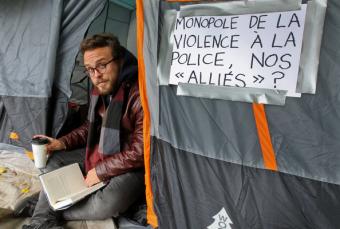In October 2022, NOHUC Researcher Andy Clark undertook a research and engagement trip to Syracuse University, New York. Along with Colin Atkinson, this was part of their British Academy funded project that conducted oral history interviews with first responders to the Lockerbie Disaster, 1988. In this Lug post, Andy reflects on engaging with victim communities in the United States, and how the materials held in the Pan Am 103 archive aligned with the narratives collected in his research.
Continue readingTag Archives: covid-19
Silence and remote interviewing: methodological reflections
Over the last several months, oral historians have been acclimatising to remote interviewing in response to the Covid-19 pandemic. This shift for many (but not all) has led to a range of new methodological questions. In this Lug piece, Andy Clark reflects on the different nature of silence in remote interactions as compared with in-person encounters. Drawing on experience of both personal and professional remote conversations, he asks whether the changing dynamic of silence could have an impacts on the nature of the materials that we collect during the pandemic. Please feel free to join in the discussion using the comments section below.
Continue readingIn-person interviewing in the era of Covid-19
With Government guidelines changing, indoor gatherings and meetings are now possible, meaning that oral historians are once again able to conduct face-to-face interviews. However, the interview situation in August 2020 is vastly different from any time before. What impact does this have on the interview as an event, and what steps should oral historians take to ensure the safety and wellbeing of everyone invovled? In this Lug post, Andy Clark discusses his approach and experience to conducting in-person interviewing in the ‘Covid-19 era’.
Continue readingRemembering the Past: Impacts of a global pandemic
By Kath Smith, Associate Researcher, Newcastle University OHU and Manager of Remembering the Past*
Continue readingPodcast Episode – Conversation with Fred Burrill

Oral history and the current Covid-19 crisis
In this statement on behalf of the Oral History Collective, Graham Smith, Professor of Oral History at Newcastle outlines some of the challenges and possible responses that oral historians face during the COVID-19 crisis. He argues that oral historians need to go beyond the technical challenges of remote working and think about the political crisis arising from the COVID-19 pandemic. In doing so, he warns against oral historians supporting stereotypical and dangerous attitudes to older people, and outlines the Collective’s local and international strategy.
Graham would like to thank Oral History Unit colleagues for their early input and Collective members who commented on the draft. Graham notes: ‘Any errors or mistakes are his alone’.
Continue readingPoverty, Covid-19 and Hope
The Oral History Collective is part of a growing movement of researchers and civil society groups whose work shines a light on the misery inflicted by the UK Government’s welfare ‘reforms’ since 2010. Our Foodbank Histories research comes out of a belief that poverty has a past, and that the current rise of foodbanks needs to be understood in its historical context. This context also sheds light on the Government’s current policy approach to the Covid-19 pandemic, which is in alignment with their approach to social policy over the past decade. Indeed, the horror expressed by many over the Government’s initial (now rejected) ‘take it on the chin’ approach to Coronavirus is a familiar feeling for many on the front line of dealing with the fall-out of a wide range of social policies. In this blog post, Alison Atkinson-Phillips argues that the utilitarian beliefs of the 19th Century continue to have an impact today, and argues for a bit of hope.
Continue reading